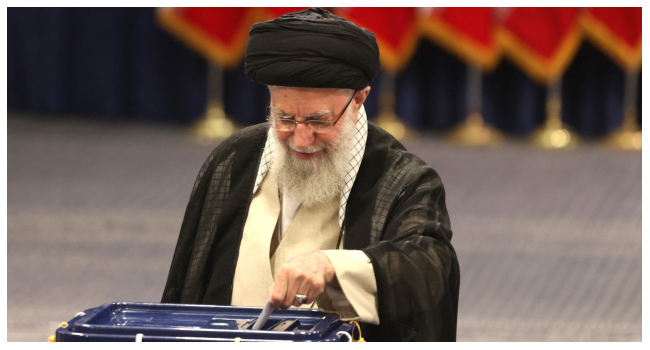Iran Holds Presidential Election Following Raisi’s Death
Polls in Iran opened on Friday for a significant presidential election after the tragic death of ultraconservative president Ebrahim Raisi in a helicopter crash last month.
Approximately 61 million Iranians are eligible to vote in this election, where reformist candidate Masoud Pezeshkian, 69, aims for a surprising victory against a fractured conservative faction.
The Guardian Council, which approves candidates, has allowed Pezeshkian to compete against prominent conservatives such as parliamentary speaker Mohammad Bagher Ghalibaf and former nuclear negotiator Saeed Jalili. Also in the running is cleric Mostafa Pourmohammadi, following the withdrawal of Tehran mayor Alireza Zakani and Raisi’s former vice president Amir-Hossein Ghazizadeh Hashemi.
Interior Minister Ahmad Vahidi announced the official start of the country’s 14th presidential election in a televised address.

Voting and Early Projections
Iran’s supreme leader Ayatollah Ali Khamenei cast his vote shortly after the polls opened and encouraged all Iranians to participate. “Election day is a day of joy and happiness for us Iranians,” he stated, urging for a high turnout.
The election comes at a tense time for Iran, amid ongoing sanctions and heightened regional conflicts involving Israel and the United States, as the Gaza war continues.
Polls opened at 8:00 am (0430 GMT) in 58,640 locations, mostly in schools and mosques. Voting stations will be open for 10 hours, with possible extensions. Early projections of the results are expected by Saturday morning, with official results by Sunday. If no candidate secures 50 percent of the vote, a runoff will be held on July 5, marking only the second time in Iranian electoral history that a second round is necessary.
Reformist Hopes and Conservative Dominance
Pezeshkian’s candidacy has rekindled cautious optimism among Iran’s reformist supporters after years of conservative dominance. Iran’s last reformist president, Mohammad Khatami, praised Pezeshkian as “honest, fair, and caring.” Khatami, who served from 1997 to 2005, also endorsed moderate Hassan Rouhani, who won the presidency and brokered Iran’s 2015 nuclear deal with Western powers, before it was disrupted in 2018 by the Trump administration.

Voter Sentiment and Key Issues
Some opposition groups, especially those in the diaspora, have called for a boycott of the election. Despite this, supreme leader Khamenei emphasized the need for a president who upholds the principles of the 1979 Islamic Revolution while also maintaining international relations.
During campaign debates, Jalili criticized the moderates for the 2015 nuclear deal, claiming it did not benefit Iran. Pezeshkian, on the other hand, advocated for reviving the agreement to lift the severe sanctions on Iran’s economy. “Are we supposed to be eternally hostile to America, or do we aspire to resolve our problems with this country?” he questioned.
Another key topic during the campaign was the compulsory headscarf for women. This issue gained prominence nearly two years after nationwide protests following the death of Mahsa Amini, who was detained for allegedly violating the strict dress code. All candidates distanced themselves from harsh police actions against women refusing to wear the hijab, with Pourmohammadi stating, “Under no circumstances should we treat Iranian women with such cruelty.”


